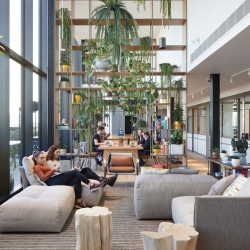September 23, 2022
TOG and Fora complete merger to create new flexible workspace giant
 Following approval from the Competition and Markets Authority (CMA), TOG and Fora are proud to announce the completion of their merger, bringing together two highly complementary businesses with similar cultures and portfolios of high-quality, design-led workspaces. The merged business (the ‘Group’) will operate under a parent company called The Office Group with both the TOG and Fora brands retained until a full brand review is completed. The Group has plans to create the premier flexible workspace group in London and other key European cities and is well positioned to draw on the expertise and scale of both companies. (more…)
Following approval from the Competition and Markets Authority (CMA), TOG and Fora are proud to announce the completion of their merger, bringing together two highly complementary businesses with similar cultures and portfolios of high-quality, design-led workspaces. The merged business (the ‘Group’) will operate under a parent company called The Office Group with both the TOG and Fora brands retained until a full brand review is completed. The Group has plans to create the premier flexible workspace group in London and other key European cities and is well positioned to draw on the expertise and scale of both companies. (more…)
































September 23, 2022
What effect will the Employment Bill have on hybrid working?
by Debbie Coyne • Comment, Flexible working